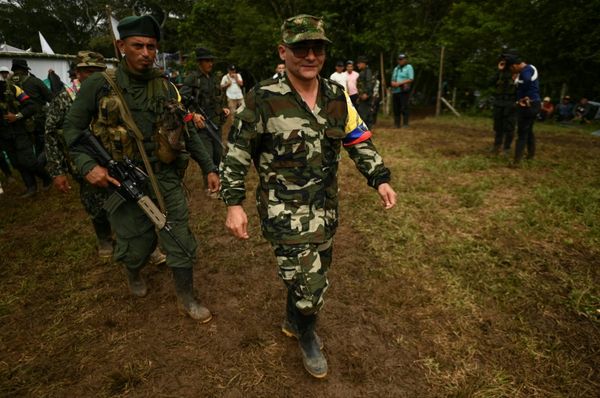
Nikola Karabatic looked around, up to the gods and to either side. More than 26,500 people were on their feet, celebrating him unreservedly and chanting his name, the noise echoing around this repurposed football stadium as it had all afternoon.
At ground level, his colleagues joined their German counterparts in leading the acclaim. One of the great French sporting careers was finally over, although nobody could quite say how. This handball quarter-final was an all-time classic: an occasion of suitable pitch for an icon to bow out.
How could France have fluffed their lines like this? Karabatic is 40, the best player in history and a three-time Olympic gold medallist. He has seen it, done it, won it all and the plan was that he would sign off with another title for the Tokyo 2020 champions.
For most of the match Les Bleus, a shadow of themselves in the group stage, seemed to have understood the stakes. With 13 seconds left they were two goals clear; with six to play the margin was one but all they had to do was retain possession or simply take a pot shot.
The France coach, Karabatic’s former teammate Guillaume Gille, called a time out and it gave their opponents a chance to reset. They had seemed resigned to the hosts running down the clock but could now prime themselves to throw whatever energy remained into winning back that ball.
Even so, it was an astonishing blunder that left Dika Mem, who had been virtually faultless, pounced on by Renars Uscins to begin a move the same player emphatically finished. Heads sunk into hands around all three of the deep, vertiginous stands in use. The clock showed 60 minutes.
With two minutes of overtime left and Germany, grasping their second chance, winning 34-33, it was time for Karabatic to make his return. He has been used sparingly in his dotage, time catching up with the body if not an ever agitated mind.
Since half-time he had watched from the bench, draped in a pink towel, jumping to his feet at moments of joy and cajoling as the hits got harder in an increasingly brutal contest.
“This could be the last one,” he had whispered to his brother, Luka, during a group‑stage meeting with Hungary when France dragged themselves out of a hole. If this Hail Mary did not work, a shuddering end really would be the outcome now.
It came, again with the final action, when the Germany goalkeeper, David Späth, spread himself and made a vital block from Valentin Porte. Späth wheeled away in ecstasy while Karabatic draped his arm around a seemingly tearful Porte. At 35-34, the race was run.
“I’ll cherish my last moment with my teammates in the locker room, maybe drink a beer and reflect on everything and also be there to cheer them up because it’s a tough moment for us,” Karabatic said.
“I never wanted to look back because I always wanted to look forward, but now it’s the end of my first life so tomorrow I’ll reflect on that and also enjoy the ride I’ve had.”
What a journey it has been. Take a survey of posters in the Paris metro and you will soon land upon Karabatic’s visage. Born in Serbia to a handball-playing father and raised in France since he was three and a half, he ended up reshaping a sport in his own image. Karabatic was a formidable all‑rounder, immovable in defence and simply clinical with ball in hand. He brought the next generation with him while remaining a level above the rest, being named the world’s star turn three times. As fans flocked to the stadium, his was the name on the back of those blue shirts.
“I would have loved to live that with a medal around my neck,” he said of the emotional farewell.
Some of France’s squad had been unhappy when plans were drawn to host the handball in Lille, feeling they were effectively being excluded from a lavish Parisian knees-up. It was agreed to hold the group phase at a much smaller arena in Porte de Versailles before heading north-east for the business end.
Nobody could say they had missed the party here. The atmosphere was hair‑raising, goals and saves celebrated gutturally, La Marseillaise belting out when France needed a lift and the ambience benefiting from the absence of an overbearing master of ceremonies. The support were left to their own devices and responded exhilaratingly.
They still stood, momentarily hushed, wondering what had struck them after Späth made his decisive intervention.
Luka Karabatic, silver-haired but at 36 the junior sibling, could offer no explanation for the malfunction that had effectively signed off his brother’s retirement. “It’s a lot to process and we’re going to need some time to digest everything,” he said, before describing his immediate post‑match encounter with Nikola. “Just giving him a hug, giving each other our arms, just being grateful for the chance we had to be together in this incredible team, in front of this incredible crowd.”
It was an event to testify that handball, a deeply serious sport across swathes of Europe, can stir the senses through action and storylines. For the elder Karabatic, the tale of a glorious finale had already been pencilled into this summer’s agenda. How cruelly it was scratched out, but what a legacy he leaves behind.
“The pain of the loss is still there,” he said. “But I’m very proud of what I’ve achieved.”







